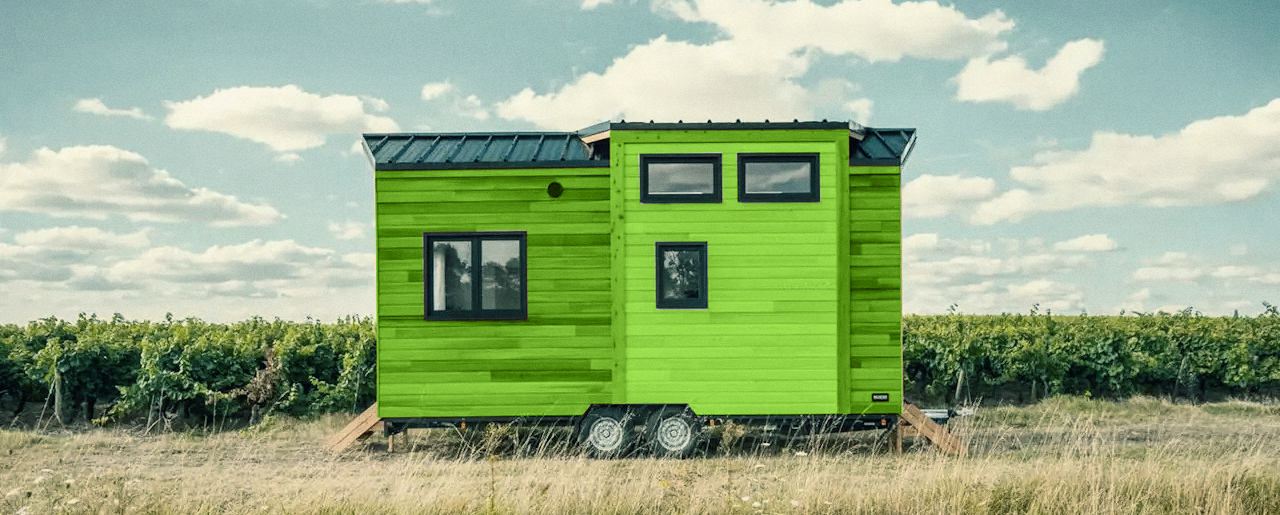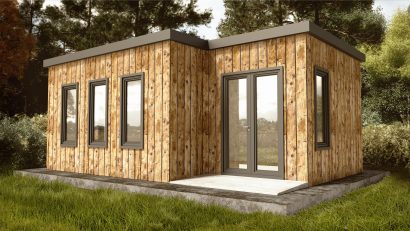
The small home (or micro-home) concept emerged in the United States in 2008 while the country was experiencing a deep economic downturn. At the time, the idea was to make home ownership easier, even for households with very modest incomes. The small home concept has now made its way to Quebec, and an increasing number of these types of residential projects can be found in the province.
In this article, Assurances Multi-Risques will discuss these very trendy micro-dwellings and explain the different types of home insurance that apply to them!
What is a small home?
A small home (or small cottage) is a dwelling with less than 1,000 sq. ft. of living space (between 300 and 500 sq. ft. for most models) which can be stationary (on a foundation) or mobile (such as a trailer).
This type of dwelling can be very advantageous from an economic and environmental standpoint, as it requires very little energy for heating and a lot less material during construction. And that’s without counting all the money saved in taxes, maintenance, furnishings and initial purchase price!
So, despite its small size, it has very few disadvantages when compared to large homes. A small home is a warm and inviting space, perfect for a single person, a couple or even a small family! Some absolutely beautiful models are reminiscent of the comfortable little cabins so many people dreamed of living in as children!

Laws and regulations governing the construction of small houses
To date, in Quebec, very few municipalities issue building permits for small houses. This is mainly for financial reasons (small houses = less property tax revenue), but another reason is the Quebec building code, which does not cover dwellings under 700 sq. ft. in area.
In addition, the Quebec provincial regulation on the construction and transformation of buildings prohibits the construction of buildings under 275 square feet in area for a studio and under 320 square feet in area for a one-bedroom single-family house. A municipality’s zoning by-laws generally set the minimum house size per sector, which often requires submitting a request for an administrative exemption. In addition, citizens are not allowed to install a small house as an annex on a lot already containing a home.
However, thanks to the growing popularity of these energy-efficient small houses, municipalities are increasingly allowing these projects to be built. In the Estrie region, such developments exist in Farnham, Knowlton, Granby, Saint-Étienne-de-Bolton, Drummondville and even in Sherbrooke, which has Le Petit Quartier, a cooperative of small house owners.
What type of insurance to choose for small houses
As for any property of value, it is important to adequately insure your small house to avoid problems in the event of an incident.
If you want to permanently install your home on a lot, whether as your permanent residence or cottage, you will need to purchase a standard home insurance policy tailored to your needs.
If, instead, you prefer a small house on wheels so that you can use it to travel wherever you want to go, you’ll need to purchase a recreational vehicle insurance policy or a motorhome insurance policy (if you plan to travel with your small home once a year or less). The latter will also need to be registered with the SAAQ, just like a trailer. Remember that if you do not have a permanent home, it is important to purchase nomad insurance, which will cover you for civil liability, usually part of a home insurance policy.
Lastly
Even though they are little (and, more importantly, quite charming!) small houses still deserve the best coverage. If you need more information in this regard, or want to request a quote, don’t hesitate to contact one of our insurance brokers specializing in home and recreational vehicle insurance. They will be able to inform you and help you make the best choice for your needs! Low price guaranteed!